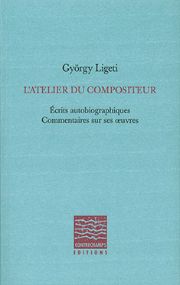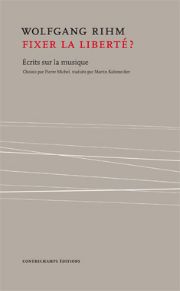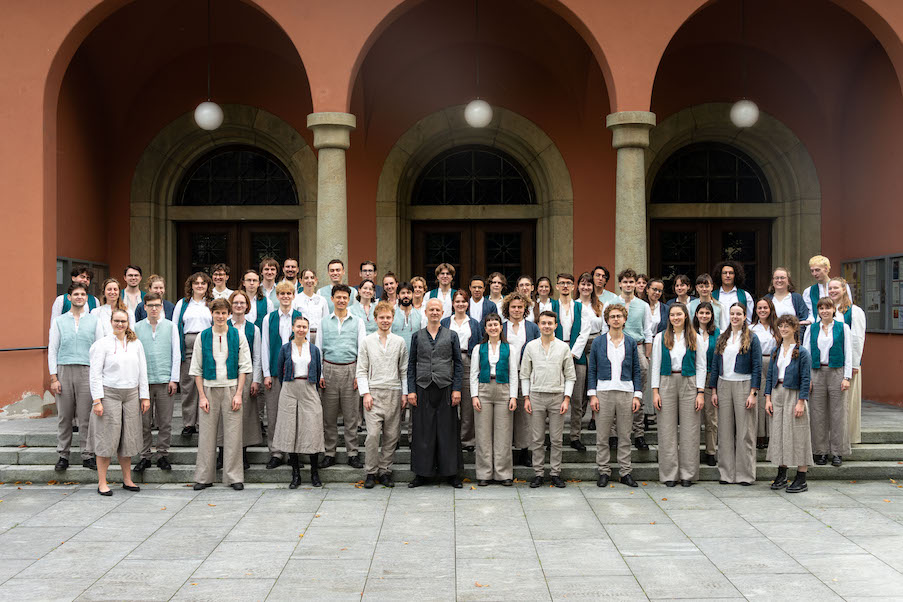Writings by Ligeti and Rihm
Continuing to publish texts that are essential for understanding the music of our time, Editions Contrechamps honors Ligeti and Rihm in two recently published books.

The second of three volumes of Ligeti's complete writings in French includes a number of autobiographical texts (mostly relating to his early years) and an abundant section devoted to his commentaries on his works. In between, some particularly fascinating chapters take us into the composer's studio. Here, he details the frequent changes in compositional processes corresponding to his successive research and passions (Nancarrow, pygmy music, ars subtilior, fractal geometry, etc.), the latter constituting more sources of inspiration than true influences. In 1985, Ligeti declared himself attracted neither by retro nor by the old avant-garde, but rather by the search for a rhythmically and metrically complex polyphony that welcomes consonance without restoring the old tonality. Elsewhere, he evokes his spatial approach to musical composition, his vision of art as appearance and illusory shimmer, the "celestial counterpart" of reality. Other texts describe his transition from a post-Bartokian style to a music in which interwoven polyphony forms a sound framework, the influence of his experiments with electronic music on his later compositions, or the way in which he drew inspiration from serialism without actually using it. His talent for storytelling, for example in his childhood tales, and the semantic richness of the technical descriptions of his works are also noteworthy.
György Ligeti, L'atelier du compositeur, 328 p., Fr. 38.00. Editions Contrechamps, Geneva, 2013, ISBN 978-2-940068-44-9
Less clear and concise in his wording, his texts being partly derived from improvised lectures, Wolfgang Rihm also likes to shake up received ideas. In this volume, we discover a selection of his most significant writings in the fields of aesthetics and musical writing, as well as on the composer's position in society. The volume also includes an interview conducted especially for this publication. Wolfgang Rihm's general attitude is not to propose a system, but to encourage freedom and independence of spirit. He himself prefers to compose according to a free path rather than by submitting to forms. His anti-academism goes so far as to consider his works as potentially unfinished, in the sense that additional musical material could always be added to them: development, new layer or re-elaboration, cutting up a work, and so on. Free in thought and tone, he distances himself from the easy label of "new simplicity" and from those who confuse simplicity with ease or bland platitude: simplicity does not preclude complexity, but complication; it is a search for comprehensibility, not regression. In these texts, which are more about aesthetic reflection than technical analysis, he questions notions of postmodernity, neotonality, improvisation and neoclassicism, and reflects on the relationship between art and culture, or culture and the state. The relationship to text and musical theater also form a significant part of his reflections. Rihm is also concerned with cultural policy. In this respect, he rails against the cult of the event, which annihilates culture. Emphasizing that a society's capacity for self-reflection is expressed in the art its artists create, he deplores the fact that the promotion and exploitation of established works stifles both creativity and anything that is not devoted to maximum profit. In the Notes on the author functionin which he offers some pertinent reflections in favor of copyright, he points out, with regard to "the argument that something is too demanding for the public and that they won't understand it", that "like children who aren't fed a balanced diet, and told over and over again, "you can't understand that", "you'll never get the hang of that", the audience could become progressively weaker and less self-confident, collapsing in the face of the slightest effort. This is a clear threat to authors - to all authors. May all cultural programmers reflect on this!
Wolfgang Rihm, Fixer la liberté, Écrits sur la musique, selected by Pierre Michel, 248 p., Fr. 32.00, Editions Contrechamps, Genève 2013,ISBN 978-2-940068-45-6









